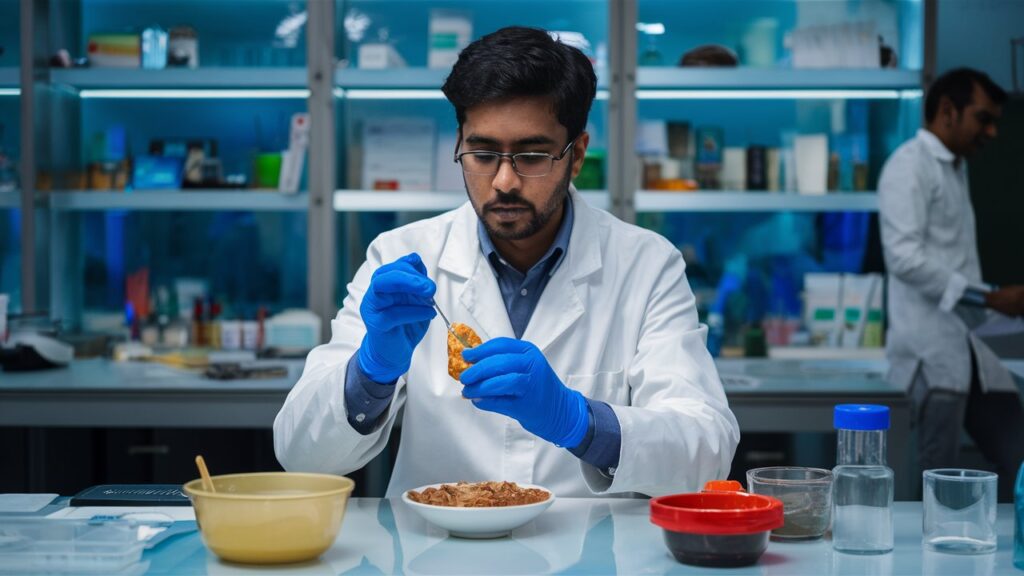
Lilaba Analytical Laboratories LLP
Surat, Gujarat
GST No. 24AAEFL2750J1ZF
TrustSEAL Verified
Services
Food Products
Menu
- Bakery Products
- Sugar Boiled Confectionery
- Sugar
- Jaggery
- Honey
- Chocolate Products
- Beverages
- Tea and Coffee
- Cocoa Products
- Whole and Powdered Spices
- Protein Supplements
- Infant Foods
- Food Additives
- Dehydrated Foods
- Dehydrated Vegetables
- Dry Fruits
- Snacks
- Ready-to-Eat Food
- Namkeen & Snacks
- Wafers & Fryums
- Sweets
- Noodles
- Edible Oil
- Fryums
- Jam & Sauces
- Milk & Dairy
- Ice Cream
close
Agriculture Products
Environment and Pollution
Menu
Nutraceutical and Functional Foods
Menu
Chemicals
Pharma
Atmospheric Gases & Pollution
Specialized analytical Facilities
Menu
- Vitamin Analysis
- Fatty Acid & Cholesterol Analysis
- Pesticide Residue & Metal Analysis
- Aflatoxin Analysis
- Food Parameter Analysis As Per FSSAI Rule
- Food Additives, Preservative Analysis
- Method Development & Validation
- Nitrosamine Analysis
- Analysis of Dioxins and Furans
- MSDS Preparation (Material Safety Data Sheet)
close
Testing Discipline
Menu
Fuels and Bio Fuels
Cosmetic Products
Menu

